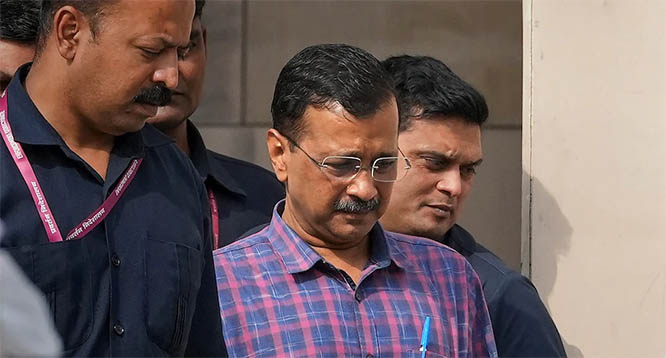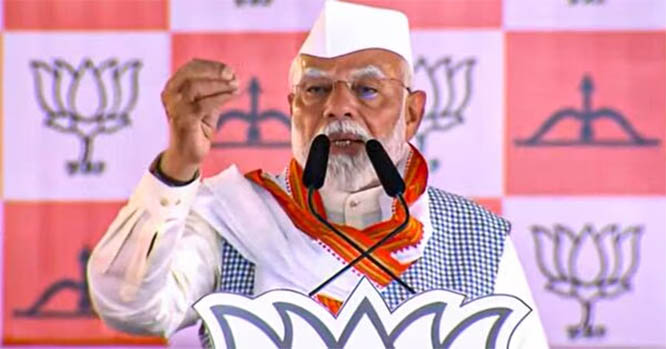New Delhi, Sept 21: The Congress on Friday termed the corporate tax cut a "panic reaction" by the government and linked it to the 'Howdy Modi' event in Houston, with Rahul Gandhi saying he is amazed at what Narendra Modi can do for a "stock market bump" before the diaspora programme.
The opposition party also claimed that the Modi 2.0 dispensation has turned out to be an "economic and political disaster" and "constant rollbacks" of economic decisions will lead to worsening of the economic situation.
Congress' chief spokesperson Randeep Surjewala said the latest announcement by BJP government slashing corporate tax worth Rs 1,45,000 crore a year is another "panic reaction to tide over choppy Sensex index, but its implications and substantive issues need to be answered by the Prime Minister and the Finance Minister not through event management but sound economic management".
"This government's path is event management and economic mismanagement. Due to this path, clouds of economic slowdown are hovering over the country. The BJP government is now recognised by slowdown and lockdown," he said.
Questioning the timing of the corporate tax cut announcement, the opposition party alleged that it has been dictated by Modi's 'HowdyModi' event in the United States.
Terming 'HowdyModi' the "world's most expensive event ever", Rahul Gandhi said he is "amazed" at what Prime Minister Modi is ready to do for a stock market bump ahead of the US event.
"Amazing what PM is ready to do for a stock market bump during his Howdy Indian Economy jamboree. At + 1.4 Lakh Crore Rs. the Houston event is the world's most expensive event, ever! But, no event can hide the reality of the economic mess 'HowdyModi' has driven India into (sic)," Gandhi said on Twitter.
The Congress party said on its official Twitter handle, "The constant rollbacks and erratic decisions taken by this government may give the impression of progress through stock market bumps but will further decrease investor confidence and lead to worsening of the economic situation in the country."
Congress senior spokesperson Anand Sharma said Finance Minister's announcements is yet another "knee-jerk" reaction to arrest a "massive" economic slowdown.
"Decision-making cannot be swinging from one extreme, from surcharge to rollback and now slashing of Corporate Tax.
"The Finance Minister should know that this will neither induce private investments nor boost private demand or consumption. The way forward was upfront public investment. From monumental mismanagement of the economy, the government is desperate to deflect and manage headlines," Sharma said.
Congress leader Jairam Ramesh welcomed the reductions but expressed doubts on whether the step will revive investment. Asking if it was the prime minister's "trump card", he said the government's move does nothing to dispel the fear that pervades India Inc.
"A headline-itis afflicted, panic-stricken Modi Sarkar has cut corporate tax rates less than 3 months after a Budget and 4 months before the next one. This is welcome but it is doubtful whether investment will revive. This does nothing to dispel fear that pervades in India Inc," Ramesh said on Twitter.
"Timing of FM announcement dictated by #HowdyModi event. PM can now say, 'I have come to Texas promising lower Taxes'. Is this his 'trump card'?," he asked.
Surjewala alleged that Finance Minister Nirmala Sitharaman and her colleagues are marred by "bankruptcy of ideas" to revive the ailing economy.
"Economic mismanagement, herculean blunders and daily bloopers have cast a shadow upon the economic stability and direction of the country," he said at a press conference.
He also asserted that the worst sufferers of the economic recession are the salaried people, the middle class, the youth, small shopkeepers and small and medium businesses.
"While corporate tax has been slashed by 27% (i.e., 30% tax slab to 22% tax slab), why has a single penny of relief not been given to the honest taxpayers, who bear the actual brunt of the economic mess created by the BJP government?" he asked.
"The Modi government 2.0 has turned out to be an economic and political disaster for India. The looming economic crisis is fast turning into 'BJP-Made Economic Anarchy," he said.
Prime Minister Modi and Finance Minister Sitharaman must understand that stimuli does not help beyond a certain level, Surjewala said.
"What the economy requires is sound leadership, mature thinking, financial prudence, fiscal discipline and honesty of purpose. The BJP government lacks all of these," he alleged.
"The Modi government 2.0 is - 'one step forward, three steps backward'. Prime Minister and Finance Minister are dealing with economy and livelihood in fits and starts like fledgling novices. Net result is falling GDP, failing exports, shutting down of industry and businesses and loss of millions of jobs," the Congress leader alleged.
"The experimental Prime Minister and the greenhorn Finance Minister" need to tell the nation as to where will the resources to compensate the revenue loss of Rs 1,45,000 crore come from," he asked.
The government on Friday slashed the corporate tax rates for companies.
Surjewala also raised the question as to how will a "run-away" deficit be checked and why were the Prime Minister and Finance Minister making a "mockery" of the entire budget exercise.
He said the budget proposals approved by Parliament have either been rejected or amended or rolled back.








Comments
Add new comment